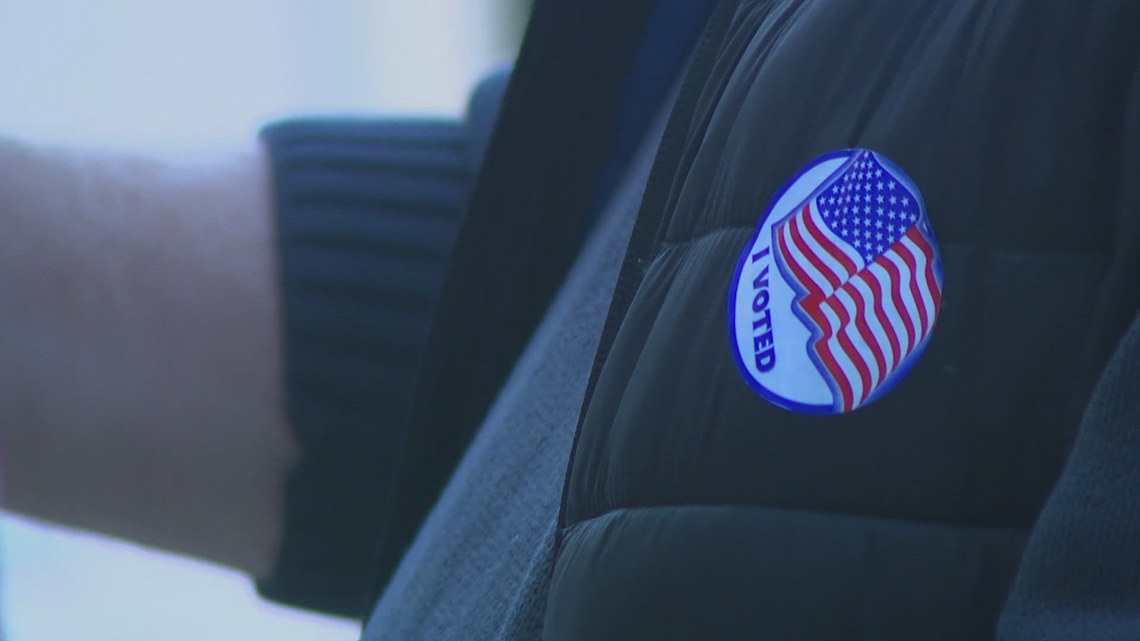Joseph W. Fischer, of Jonestown, is accused of civil disorder and assaulting, resisting or impeding police during the Capitol riot.
WASHINGTON — A former Pennsylvania patrolman whose case was at the center of the U.S. Supreme Court’s major Jan. 6 ruling earlier this year will begin trial in February for allegedly charging police during the Capitol riot.
Joseph W. Fischer, who at the time was a patrolman with the North Cornwall Township Police Department in Pennsylvania, was arrested in February 2021 and indicted a month later on three felony counts of civil disorder, assaulting, resisting or impeding police and obstruction of an official proceeding.
Fischer was one of numerous Jan. 6 defendants to challenge the government’s use of a post-Enron obstruction statute in their case. In early 2022, U.S. District Judge Carl Nichols found defendants charged under the statute – 18 U.S.C. § 1512(c)(2) – must have taken “some action with respect to a document, record or other object” in order to obstruct the joint session of Congress on Jan. 6. As a result, Nichols dismissed the charge against Fischer and two other men.
In June 2022, the Department of Justice appealed Nichols’ decision to the D.C. Circuit. A three-judge panel ultimately upheld the use of the statute in a split decision, leading to Fischer filing an appeal with the Supreme Court. In June, SCOTUS agreed with Nichols in a 6-3 ruling. Writing for the majority, Chief Justice John Roberts said Jan. 6 defendants charged with obstructing the joint session must have "impaired the availability or integrity for use in an official proceeding of records, documents, objects, or... other things used in the proceeding, or attempted to do so."
Roberts, who was joined in the majority by an ideological mix of Justices Clarence Thomas, Samuel Alito, Neil Gorsuch, Brett Kavanaugh and Ketanji Brown Jackson, said the government's more expansive reading of the statute would criminalize a "broad swath of prosaic conduct," including that routinely performed by activists and lobbyists.
"Nothing in the text or statutory history suggests that subsection (c)(2) is designed to impose up to 20 years’ imprisonment on essentially all defendants who commit obstruction of justice in any way and who might be subject to lesser penalties under more specific obstruction statutes," Roberts wrote.
The Supreme Court’s ruling has led the government to move to dismiss the charge in dozens of cases awaiting trial since July – although last week, the DOJ said for the first time it intended to bring the charge to trial against an Ohio couple. The government has also pushed judges to uphold the convictions of defendants who pleaded guilty to the obstruction count prior to SCOTUS’ ruling.
The case returned to Nichols’ courtroom earlier this month and, on Wednesday, the parties appeared to discuss how it will move forward. Both Assistant U.S. Attorney Alexis Loeb and Fischer’s counsel, assistant federal public defender Lori Ulrich, said they believed the case was headed to trial on the remaining counts and asked Nichols to set a date.
Due to a packed trial schedule for the remainer of the year, Nichols scheduled jury selection in Fischer’s trial to begin on Feb. 24, 2025. Loeb said the government’s case should take approximately three days, and Ulrich said the defense’s case would likely take only one or two days. Ulrich did not say whether Fischer intends to take the stand in his own defense.
Despite his win on the obstruction count, Fischer still faces serious felony charges, including one accusing him of assaulting a line of police in an effort to proceed further into the Capitol. According to a criminal complaint filed in federal court, Fischer posted videos to his Facebook page showing him taking part in a charge on Capitol Police lines on Jan. 6 and discussing being pepper sprayed.
In one post, Fischer allegedly wrote, “I was there… we pushed police back about 25 feet. Got pepper balled and OC sprayed, but entry into the Capital [sic] was needed to send a message that we the people hold the real power.”
Investigators said they identified Fischer in bodyworn camera footage captured by a DC Police officer that appears to show him in the midst of a scuffle between police and rioters inside the building. According to court documents, Fischer can be heard identifying himself as an officer, yelling, “I am a cop. I am a cop too,” as he attempts to get up from the ground.
After the riot, the FBI said, Fischer exchanged messages with another Facebook user about the possibility of him losing his job as a police officer.
“I told [the chief] if that is the price I have to pay to voice my freedom and liberties which I was born with and thusly taken away then [that] must be the price,” Fischer allegedly wrote. “I told him I have no regrets and give zero [expletive].”
In addition to setting a trial date Wednesday, Nichols also entered an order barring Fischer from contacting a local prosecutor after he allegedly sent them a private message on social media saying, “By the way…Go f*** yourself. If you believed one word from your FBI buddy, then you’re really stupid. When I win, your name will be one of the first on my lips. You’re already in my book.”
Fischer’s attorney did not oppose the restriction.
In the 43 months since the attack on the Capitol, nearly 1,500 people have been arrested and charged with crimes ranging from entering a restricted area to seditious conspiracy. More than 1,100 defendants have now been convicted in connection with the attack.
.png)









 English (US) ·
English (US) ·